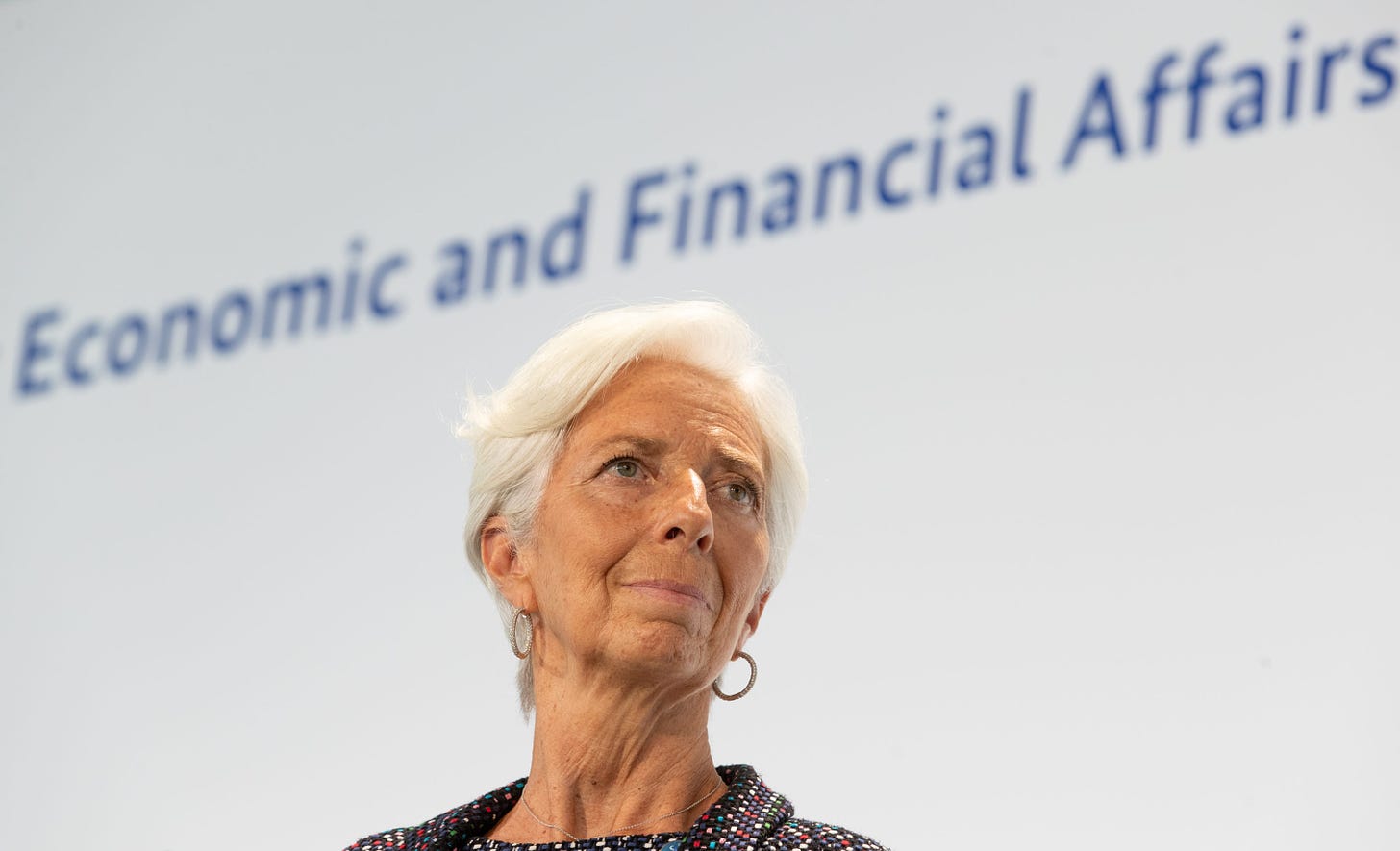The European Central Bank Can’t Save the European Economy by Itself
The bank’s single mandate of price stability could create more economic instability in the long run.

The recent announcement by Christine Lagarde, president of the European Central Bank (ECB) that she intends to have the bank adopt a new inflation target should draw attention to the weakness of the ECB having a single price inflation mandate.
Unlike the Federal Reserve, which has a dual price and employment mandate, the ECB has a single mandate to maintain price stability. For many years now the ECB has defined price stability as inflation at “close to but below 2 percent.” Like the Fed, the ECB’s mandate does not mention the need for the ECB to avoid inflating asset prices, like houses and equities, or to refrain from distorting the flow of credit.
The single mandate led the ECB to too-tight monetary policy in past inflationary periods. Now, at a time of deflation, the single mandate conversely risks contributing to the creation of unhealthy asset and credit price bubbles by having the ECB continue to disregard how its policies designed to avoid deflation might promote asset price inflation and credit misallocation.
Given the ECB’s single price stability mandate, it is understandable that Lagarde is seeking a change in the bank’s policy. After all, in the wake of the pandemic, the Eurozone is already experiencing falling prices amid Europe’s worst recession in the past 90 years. In the period ahead, that deflation could get worse considering the large gaps that are expected to persist in the Eurozone’s labor and product markets and the recent 10 percent appreciation of the Euro. That deflation in turn could make the Eurozone’s public debt problem even more intractable.
Lagarde is now intimating that she wants the ECB to loosen its policy even further for an extended period of time to get inflation back to the ECB’s target, indicating that she would like to have the ECB follow the Fed by adjusting its inflation target. Instead of simply aiming at the target, she would now like the ECB to tolerate a period of inflation above 2 percent to compensate for past periods of lower inflation.
Getting Eurozone inflation back to the ECB’s target will be difficult to say the least given the position in which the ECB now finds itself. With most Eurozone interest rates already negative, reducing these rates further into negative territory will be bad news for the Eurozone’s weak banking system. Those banks, which are already contending with the fallout from the coronavirus recession, would likely be unable to pass on negative interest rates to their depositors. Their profit margins would be squeezed just when they can least afford it.
Similarly, flooding the market with liquidity, which would seem to be the ECB’s only other policy option to produce inflation, would risk once again contributing to asset price bubbles and the further misallocation of global credit. As has been the case before, expanding the ECB’s already expansive bond buying program would contribute (along with the Fed) to a further rise in global equity and housing prices and the expanded flow of cheap credit to borrowers with questionable creditworthiness. While this might allow the ECB to achieve its price inflation target in the short run, it would risk inflating asset and credit market bubbles, which would inevitably burst.
All of this would suggest that the ECB’s single-minded pursuit of its inflation objective could lead it to adopt policies that are unhealthy for the Eurozone’s longer-run economic development. It would also suggest that the bank acting alone cannot achieve its longer run price inflation objective. Rather, if the ECB is to do so in a manner that promotes European long-run economic prosperity, it must be supported by an expansive budget policy of the Eurozone’s member countries.









